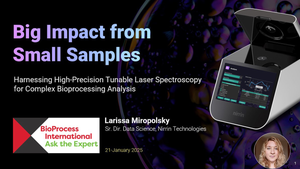
The Hamburg, Germany-based contract development and manufacturing organization (CDMO) Richter BioLogics has opened a multiproduct biological manufacturing facility for clinical and commercial material in Bovenau, Germany, 400 km northwest of Berlin.
The firm is investing €100 million ($111 million), adding 1,500-liter and 300-liter production lines with stainless steel bioreactors to produce microbial-based products including proteins, antibodies, plasmid DNA (pDNA), and vaccines.
The facility covers a total area of about 10,000 square-meters and includes analytical laboratories, office space, a warehouse, and technical areas. The expansion began in 2020 and is expected to create more than 400 jobs by the end of 2024.
“As an expert with a 35-year track record in GMP manufacturing, we see great opportunities for further growth in the areas of nanobodies, antibody fragments and pDNA-based products. For pDNA we have a ready-to-use process called pART which we can scale up and down as requested by clients,” a spokesperson for Richter BioLogics told BioProcess Insider.
“We manufacture products for all clinical phases, but the clear focus of the Bovenau facility is on commercial production. At the same time, our long-standing customers from the pharmaceutical industry provide a reliable foundation for further growth and implementation of new technologies.”
According to the firm, upstream and downstream lines can be operated independently and in parallel within the Bovenau facility with full flexibility in scale. Additionally, the company has also strengthened its R&D at the site.
“[At the facility,] different products are manufactured, predominantly, in E. coli and P. pastoris, including therapeutic proteins and peptides, antibody-like scaffolds such as variable heavy domain of heavy chain (VHH) and nanobodies, plasmid DNA (pDNA), and bacterial vaccines.” The spokesperson added, “We see great opportunities for growth in nanobodies and antibody fragments, where we have considerable experience and expertise.”
“We constantly employ process performance qualification (PPQ) procedures and follow strict GMP guidelines. Each step during the production process is controlled and documented. This includes risk analysis, cleaning validation procedures, and the use of qualified equipment within the facility.”
About the Author
You May Also Like








